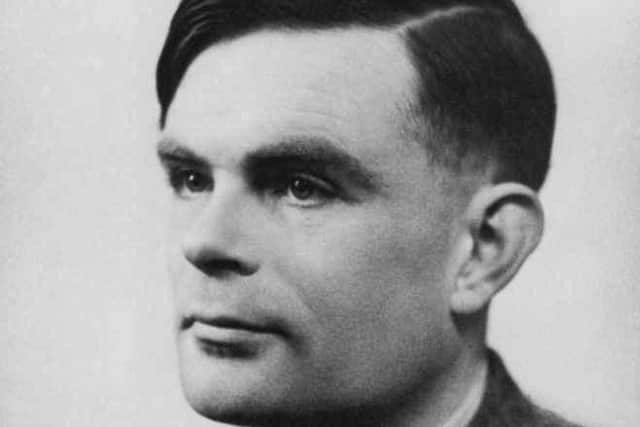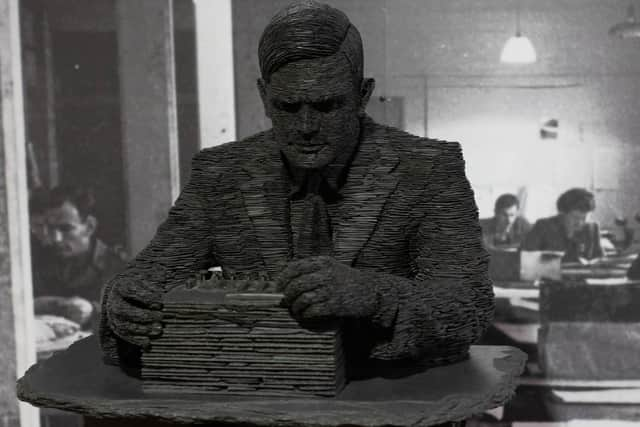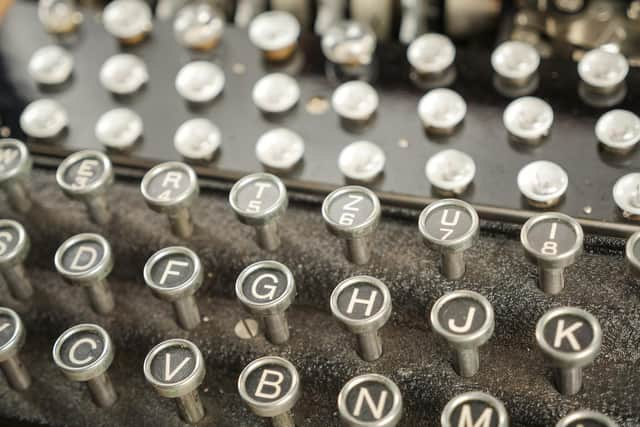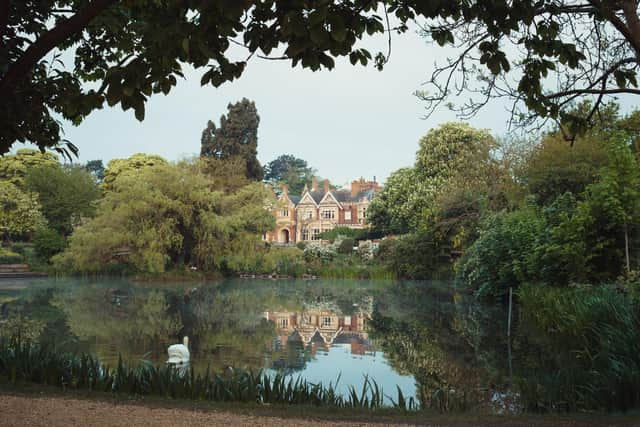Milton Keynes hero Alan Turing celebrated by The National Lottery during LGBT+ history month
and live on Freeview channel 276
LGBT+ icon and mathematician Alan Turing OBE, who helped decipher codes from the Nazis during the Second World War at Bletchley Park, is being celebrated by The National Lottery as part of LGBT+ History month.
Turing worked at Bletchley Park from 1939 to 1942 as a cryptanalyst, helping to develop a method for deciphering the Enigma cipher from the Nazis and allowing Bletchley Park to supply Allies with large quantities of military intelligence.
Advertisement
Hide AdAdvertisement
Hide AdBy early 1942, the cryptanalysts at Bletchley Park were deciphering over 39,000 intercepted Enigma messages each month - a figure that rose subsequently to more than 84,000 per month.


And while Turing was honoured for his work with an OBE, he was prosecuted when he confessed to homosexual activity in 1952, which was illegal in the UK at the time.
Turing undertook hormone therapy rather than face prison, but committed suicide in 1954 – yet is still remembered to this day as an icon in the LGBT community for his ground-breaking work.
Dominic Amall, Chief Executive of Just Like Us, an LGBT+ charity for youths, said: “His story, had he not undergone the tragedy that he did, would already have been absolutely astonishing.
Advertisement
Hide AdAdvertisement
Hide Ad“There was a lot more to the man. Ultimately, he was defined by his sexual orientation. That was the basis on which he was castrated.


“In 2009, the Prime Minister, Gordon Brown, issued an apology for the treatment of Alan Turing, and in 2013 he was officially pardoned, exonerating him completely.
“To learn that relatively recently you could go to prison for being a gay man, you could have your work discredited, you could lose your life, that's an extremely shocking story for young people to hear and, for that reason, it's a very important one.”
The National Lottery granted £4.6 million to Bletchley Park in 2011 to restore some of the Park’s most important buildings, most notably the listed wooden huts that were the hub of vital codebreaking activity.
Advertisement
Hide AdAdvertisement
Hide AdOver the past few years, new exhibitions and interactive displays have brought Bletchley’s fascinating story alive for visitors of all ages.


David Kenyon, Research Historian at Bletchley Park, said: “Bletchley Park is the Second World War home of an organisation called the Government Code and Cypher School – which was the British secret code breaking establishment. Encrypted enemy traffic would be intercepted and sent onto Bletchley Park to be deciphered.
“Turing arrived in Bletchley Park the day after the War began on the 4th September 1939 to start work helping out with the code breaking.
“Bletchley’s ability to break, by the end of the war, thousands of Enigma messages a day comes from Turing’s contribution.
Advertisement
Hide AdAdvertisement
Hide Ad“The way he was treated because of his sexuality is considered very unjust now and rightly so. His subsequent death also contributes to his legend.


“If he had not been prosecuted and had he lived to a ripe old age, we would think of him very differently. I think he would be just as important, or even more so, because he would have gone on to make all sorts of scientific discoveries and his contribution to computing probably would have been even more significant.
“Bletchley Park is a nationally and internationally important site – one, because of the contribution the people at Bletchley made to the Allies winning the Second World War, but also the fact that Turing and others were making these breakthroughs in IT means it is one of the birth places of our modern digital world.
“Our modern world is how it is because of how the Second World War turned out, but also because of how we’ve become a digital society, and that is all down to Turing’s work.”
Advertisement
Hide AdAdvertisement
Hide AdMore than £30 million goes to good causes from The National Lottery across the country every week, making vital projects like these possible. To find out more about how The National Lottery supports good causes throughout the UK, visit here.